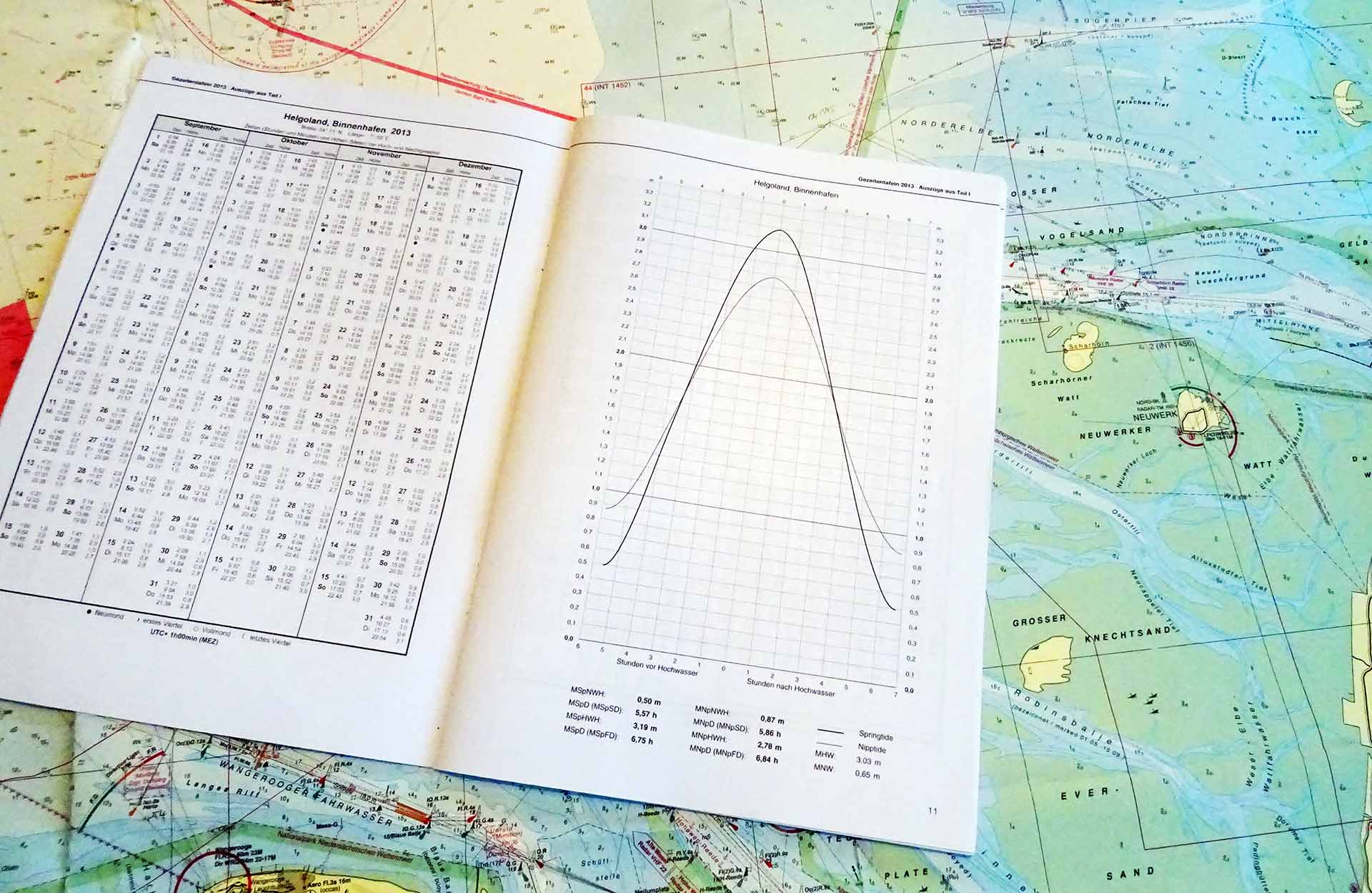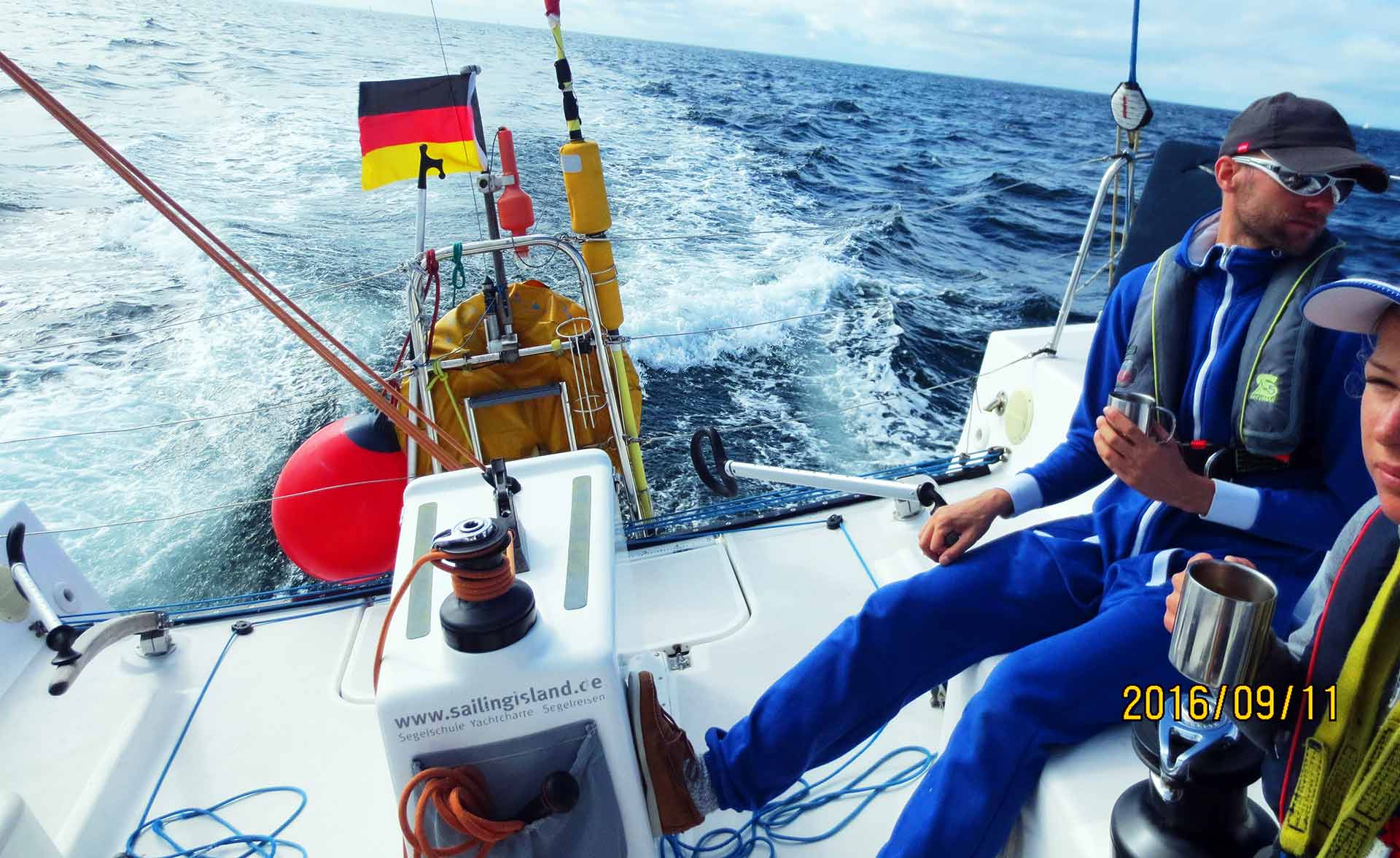As I had laid down in previous articles on my own education in terms of acquiring the official certificates which will enable me both in terms of capabilities and in terms of legal requirements to operate a seagoing vessel (read all the articles here) the final and last exam to pass was the examination of Coastal Skipper theory. This is what I´ve done last weekend. Good news first: I´ve passed it.
Practice for the SKS-Theory Exam
After doing the so called SBF See, the legally required “boat driving license” it´s the so called SKS, or Sportküstenschifferschein, which every German sailor should at least acquire. It´s kind of similar to the RYA Coastal Yachtmaster, although the two are very different. In terms of succession, the SKS is the Coastal Skipper´s sister. Getting the SKS is a tough process: Practical exam consists of a 6-day offshore training cruise with hard drills days in and days out (read it here and here).

The theoretical part is made up of a compendium of 12 questionaires with 18 questions each out of a catalogue of 400 questions on the topic of legal stuff, weather, navigation and seamanship. The tough part: It´s not a multiple-choice test (like the SBF See), you have to answer in written form with your own words. That means: No memorizing of trigger words but real comprehension is needed.
I did practice 11 of the 12 sheets during the last weeks. Guess what? The only one sheet I didn´t get to practice was the very sheet I did receive during the exam …
During the SKS-Examination
It was an awful day: Cold and rainy. Thick low hanging clouds, torturing one´s mood. I arrived some 45 minutes early and with me some 5 other students entered the room. Quietness. “The following examination consists of two major parts. You have 90 minutes for each part.”, said the state-licenced examiner. “We begin with the questionnaire, afterwards you´ll get the navigation part.”
I found it odd to write down my answers, funny to see how one´s handwriting deteriorates over the course. I was first to finish, after some 45 minutes. Double-checking my answers: I really didn´t knew only one answer, wasn´t too sure with 2 more. But all in all had a good feeling.

Handing out the questionnaire, I left the room. After taking a small break (water & Red Bull) I returned to receive the navigational part. Working on the D4 chart, a huge chart showing Elbe, Jade and Weser Estuaries, German Bight and the Island of Helgoland, my task was a full cruise from the Northern Frisian town of Büsum via Helgoland to the Eastern Frisian Island of Wangerooge. Tide calculations all over …

I was also finished in a relatively short amount of time. During the course of the exam, one of the inspectors said: “I can tell you that everyone passed the first part of this exam.”, which was a great information and boosted our faiths. After clearing the task and arriving at Wangerooge I handed out the sheets and packed my stuff. Sat down outside the room in the Cafeteria and waited. 10 minutes later the examiner came, watched carefully how I was signing the brand new certificate and congratulated me: “Be safe on the water all the time: My congratulations!”
I was done. That was it.

The German SKS may not be as hard or extensive as the RYA Coastal Skipper, but it´s a very tough certification to acquire and a really important one too. I think every yachtsman should get at least this SKS/RYA Coastal when he takes on responsibility for people aboard a seagoing vessel.
I am proud so far of having passed both practical and now the theoretical part which leaves me with determination for the coming season: No more certificates, but more miles. This time, it´s the very act of sailing a boat I am keen to perform.
Interesting Articles on that topic:
The practical SKS/RYA Coastal exam
The Short Range Certificate (SRC)
Learning how to sail
